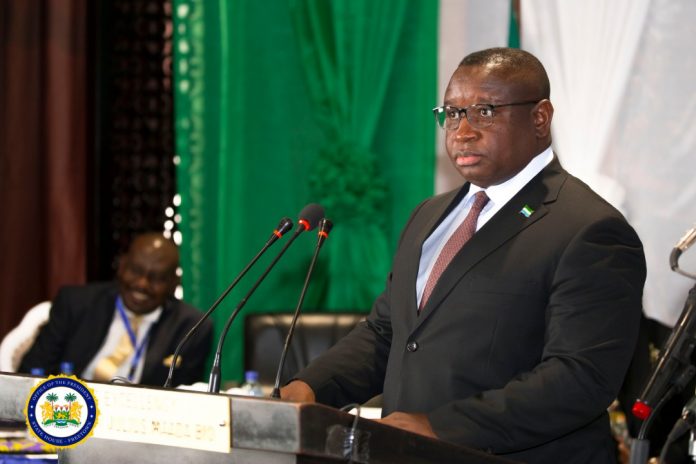By Amin Kef Sesay
Addressing a cross section of the country’s media practitioners past Friday in Freetown, His Excellency President Dr. Julius Maada Bio called on the media to join with the Government to take the country to a high level.
The call is good, given the role of the Press in promoting democracy, the rule of law, good governance and human rights as fundamental constructs of any peaceful, progressive society.
Yet, besides expunging Part 5 of the 1965 Public Order Act that criminalizes free speech, there are other more subtle instruments of repression of press freedom in the country.
The past Government Minister of Information promised SLAJ to buy a press for the print media whose message goes far and wide. It never materialized. Today the biggest threat to the print media’s continued survival as a means of information is the high cost of printing materials.
Like education, no nation can survive and thrive without information. If the Government wants to help the media in general to survive, the first thing to do is to remove all taxes on information related materials including equipment used by radio and TV stations as well as exemption from paying tax as the Government’s contribution to creating a well-informed population.
Another thing restricting journalists and the media from correctly informing the public is the reluctance of public officials generally to entertain journalists and their questions about things the people need to know; this in spite of the so-called Freedom of Information Act.
In a nutshell, there are legal, political and economic factors that encourage the media to bow down-tow to the powers that be that should investigate in order to survive which greatly compromises the independence and objectivity of the media.
Any form of repression of free media is a strong indication that other political rights and civil liberties are in danger when even populist democratically elected leaders seek to secure and build on their gains by taming the press. Some even go as far as tightening the screws on dissenting voices, as any breach in their media dominance threatens to expose official wrongdoing or debunk official narratives.
Mass illiteracy and poverty also funnily contribute to limitation of the press’s ability to inform, as large segments of the population cannot access unbiased news and information. This is not because journalists are being thrown in jail, as might occur in authoritarian settings. Instead, the media have fallen prey to more nuanced efforts to throttle their independence. Common methods include government-backed ownership changes, regulatory and financial pressure, and public denunciations of honest journalists.
Governments also offer proactive support to friendly outlets through measures such as lucrative State contracts, lavish adverts, favorable regulatory decisions, and preferential access to state information. The goal is to make the Press serve those in power rather than the public.
These are the subtle forms of press repression that continue to exist in Sierra Leone, hampering the effectiveness of the Press as a true medium of information, communication, public debate and as a powerful agent of socio-political change.




